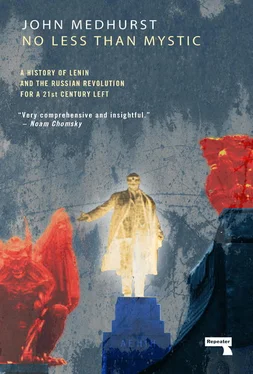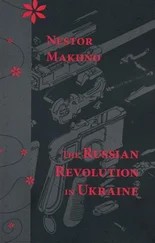If the issue was the two formulations alone, it would have been absurd. But it was not. As Martov told the conference, revealing publicly the differences between them:
I agree with Lenin that in addition to organisations of professional revolutionaries we need ‘loose organisations’ of various types. But our formula is the only one to reflect our aim to have the organisation of professional revolutionaries linked with the masses by a series of other organisations. In our view, the workers’ party does not consist solely of the organisation of professional revolutionaries, but of the latter plus all the leading active elements of the proletariat. 22
Lenin responded that under Martov’s definition “absolutely anyone could be a member”. Martov replied, “Yes, if you like”.
After a heated debate a vote was taken. Lenin’s formulation was rejected by 28 votes to 23. On the crucial question of party membership, Martov had won. This was a bitter blow to Lenin. Having lost this important battle Lenin knew it was essential that he retain control of Iskra ’s editorial board, and he threw everything into doing so. It was in this battle, and the tactics Lenin employed to get his own way, that the newly formed party cracked wide open.
Having lost on the membership, Lenin demanded that his personal supporters form a majority on the Central Committee. Martov refused, and in response Lenin used his agents to spread rumours about Martov’s personal and political weaknesses. Only a few days old, the party was already dividing into “hards” and “softs”, with men like Bauman, Krasikov and Shotman (who threatened to beat up a delegate who switched from Lenin to Martov) reveling in macho postures of revolutionary extremism. 23Because of the animosity now infecting the Congress, some of the delegates, principally the Economists and the Bundists, departed. The Bundists under Liber also had major disagreements with the Iskra faction’s attempt to annex the Jewish proletariat to the RSDLP. Aside from this issue, they had generally supported Martov.
With the Bundists gone Lenin now secured a majority to reduce the Iskra editorial board from six to three (removing Axlerod, Zazulich and Potresov, thus leaving Lenin and Plekhanov to outvote Martov on all major issues–or so Lenin supposed). As the Congress broke up in acrimony Lenin was quick to dub his own supporters “Bolsheviks” (Russian for “Majoritarians”) and Martov’s “Mensheviks” (Russian for “Minoritarians”) on the basis of the final vote for the editorial board, ignoring entirely the bigger, more representative and significant vote on the membership clause, which he had lost. Martov made the almost incredible political mistake of letting the labels go unchallenged.
So the RSDLP appeared to split on the minor matter of the composition of Iskra ’s editorial board. But that was deceptive. As the future Menshevik leader Theodore Dan put it in his magnum opus The Origins of Bolshevism , although Lenin and Martov had appeared united on key issues at the beginning of the congress, it became clear over the course of the congress that it was not a matter of different shadings of view “but of two tendencies of organisational thought and practice that were hard to reconcile”. 24Lenin was his doctrine personified. In his manipulation of delegates, his bullying and slandering of opponents who had until the Congress been his comrades and friends, his will to dominate regardless of the consequences, he had alienated many in the party. It was not very long before a key participant, Pavel Axelrod, went public with the underlying philosophical divergence between Bolshevism and Menshevism.
In an Iskra article “The Unification of Russian Social Democracy and its Tasks”, Axelrod proudly acknowledged that “the triumph of revolutionary social democracy over other trends in our party was officially confirmed and proclaimed at our second congress”, but went on to ask what the party must do to bring that triumph to the Russian masses. In doing so, he attacked those who were “fetishists of centralisation”. He argued that it was not possible to develop a politically conscious working class “when the party members have been turned into so many cog-wheels, nuts and bolts, all functioning exactly as the centre decides”. 25Axelrod’s article established a key element of Menshevism, namely that “Russian social democracy must be converted into a mass party controlled from below and composed of politically mature workers”. 26
Leninism–as Lenin’s general philosophy and strategy for revolution can legitimately be called from 1903 onwards–had a different focus. It did not, at least initially, seek a mass party at all. The party it aspired to create was controlled from above and based on the assumption that most workers could not develop political initiative without a trained elite to show them how. Its fatal flaw was a lack of empathy with the workers it claimed to speak for. In the later analysis of the American socialist Irving Howe, Lenin’s conception of the Vanguard Party and its relationship to the working class “assumes a homogeneity of interest and outlook in that class which is rarely present, and thereby it diminishes the claims of other radical parties to be authentic representatives of the working class or portions of it”. 27The conception, though, was meant to be divisive. Whatever its ultimate intentions, it was a charter for command, control and hierarchy.
The debacle of the Second Congress did not go unnoticed by European social democrats. Rosa Luxemburg, in Organisational Questions of Russian Social Democracy (1904), acknowledged the particular problems facing the Russian party by the conditions of autocracy, and that in those conditions it had to adopt clandestinity and centralisation, but she questioned the degree of centralisation advocated by Lenin. She noted that Lenin defined a revolutionary social democrat as “a Jacobin joined to the organization of the proletariat, which has become conscious of its class interests”. To this she responded:
The fact is that Social Democracy is not joined to the organization of the proletariat. It is itself the proletariat. And because of this, Social Democratic centralism is essentially different from Blanquist centralism. It can only be the concentrated will of the individuals and groups representative of the working class. It is, so to speak, the ‘self-centralism’ of the advanced sectors of the proletariat. It is the rule of the majority within its own party.
Her concern was that Lenin’s scheme for a Vanguard Party would downgrade working-class self-activity.
Luxemburg wrote one year before the Russian Revolution of 1905 and thirteen years before the revolution of February 1917, both of which were mass popular uprisings in which the Bolsheviks played a small, negligible and in some respects negative role. Already, she had discerned:
It is a mistake to believe that it is possible to substitute ‘provisionally’ the absolute power of a Central Committee (acting somehow by ‘tacit delegation’) for the yet unrealisable rule of the majority of conscious workers in the party, and in this way replace the open control of the working masses over the party organs with the reverse control by the Central Committee over the revolutionary proletariat.
She also sensed a deeper problem. “The ultra-centralism asked by Lenin is full of the sterile spirit of the overseer”, she wrote. “It is not a positive and creative spirit. Lenin’s concern is not so much to make the activity of the party more fruitful as to control the party–to narrow the movement rather than to develop it, to bind rather than to unify it ”. She concluded, “Stop the natural pulsation of a living organism and you weaken it, you diminish its resistance and combative spirit […] The proposed means turn against the end they are supposed to serve”. 28
Читать дальше












